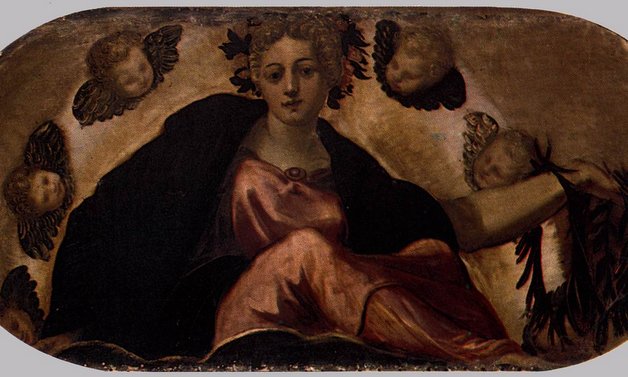A lot of us are clearer on how to be successful than on how to be virtuous. — David Brooks
Alan Alda counsels graduates that everything in life takes time. Bill Nye exhorts them to change the world. Katie Couric advises, “get yourself noticed.” But David Brooks dares to philosophize about happiness. Indeed happiness and the pursuit thereof top the list for commencement address subjects. The fearsome moment of the signature graduation address demands that a speaker transcend the banal, delight and entertain, all the while offering a substantive message about the meaning of life that manages to appeal to the chimera that is the modern American university. Nevertheless, New York Times columnist David Brooks accomplished all this in his 2015 speech at Dartmouth College…and the philosophy he espoused sounded surprisingly Thomistic.
St. Thomas and the Moral Life
As you may know, St. Thomas devoted about half of his magnum opus, the Summa Theologiae, to moral theology. Aquinas’ moral theology synthesizes the teaching of the Church Fathers (grounded in the Biblical teaching of Jesus and the Ten Commandments) with a highly developed understanding of the virtues. So important are the virtues for Thomas Aquinas that he structures his entire moral exposition around them, rather than the Ten Commandments, for example. But the key to Aquinas’ entire account of the Christian moral life is happiness.
For St. Thomas, focusing on the virtues does not compete with the Biblical witness and exposition. The Scriptures are the inspired word of God, and as such, are more or less supernatural manifestations of what the virtues are supposed to look like in our lives. The Ten Commandments are a guide, as we—by the power of God’s grace and our habit-forming actions—build the virtues in our lives. We are naturally drawn to the good, and then build up the habits of seeking it. David Brooks gets at something like this in his address, saying, “Making a commitment simply means falling in love with something, and then building a structure of behavior around it that will carry you through when your love falters.”
Servais Pinckaers and Freedom of Indifference
Arguably, the best recent interpreter of St. Thomas’ moral vision was the twentieth century’s Servais Pinckaers. Fr. Pinckaers eloquently and repeatedly emphasizes the centrality of happiness in Aquinas’ moral theology. For Aquinas, one approaches happiness by the cultivation of virtue, much like a pianist cultivates his natural talent by intensive practice, so that he might arrive at one day mastering Rachmaninoff or Beethoven. Bernhard Blankenhorn puts it this way: growth in virtue develops the skills of the soul.
Pinckaers contrasts the typical understanding of freedom with the freedom that fulfills the innate human longing for happiness. Our age thinks freedom essentially consists of casting off from the will coercion, necessity, natural instinct, and even reason itself. Such freedom is absolute and uninhibited. But that’s not how human persons were made, observes St. Thomas, and it won’t make us happy. Pinckaers calls the kind of freedom that will satisfy our hungry hearts “freedom for excellence.” Brooks likewise makes the same essential distinction. He says, “But your fulfillment in life will not come from how well you explore your freedom and keep your options open. That’s the path to a frazzled, scattered life in which you try to please everyone and end up pleasing no one…Your fulfillment in life will come by how well you end your freedom.” For Brooks the freedom of the modern world (freedom of indifference) is a tyranny that destroys life, while moral commitment—the way one “ends” his freedom—is the way to happiness.
Freedom for Excellence
“When you make a commitment to something you truly love, whether it’s a spouse, a job, a company, or a school, it won’t feel like you are putting on an uncomfortable lobster shell,” says Brooks. “It will feel like you are taking off the shell and becoming the shape you were meant to be.” This is true freedom: becoming who you were made to be. Fr. Pinckaers writes, “freedom for excellence is rooted in a desire for happiness which proceeds principally from a sense of truth and goodness, together with the inclination to live in society.” Such freedom exalts man and drives sin—which distorts who he was made to be—from his soul. In the end it’s virtue—the solemn, unrelenting, exhilarating pursuit of goodness and love—that makes us human. We should only bind ourselves to the noble things: the true, the good, the beautiful. Only these will put our hearts at peace.
For, as Brooks says, “It’s the things you chain yourself to that set you free.”
✠
Image: Tintoretto, Allegory of Happiness







